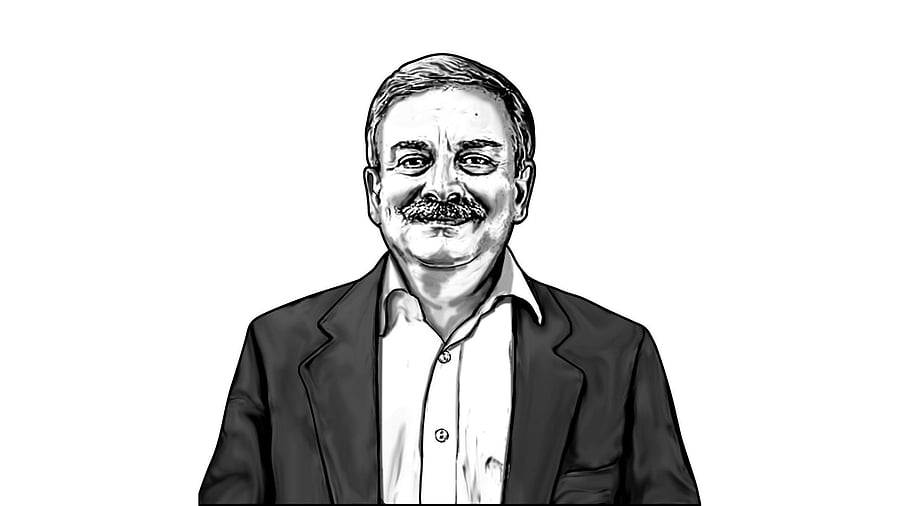
Gurucharan Gollerkeri The former civil servant enjoys traversing the myriad spaces of ideas, thinkers, and books.
Credit: DH Illustration
In our fractious age, it has become easy to believe that we are fundamentally irreconcilable. Lines are drawn with alarming speed – between left and right, us and them, believer and non-believer, citizen and migrant, patriot and traitor. Political rhetoric tightens like a noose. Social media converts disagreement into a performance. Even within families and friendships, ideological lines quietly harden, calcifying into silence or rupture. We are living not just in an age of disagreement, but of unseeing – a refusal, or perhaps an inability, to imagine the moral world of another.
It is in this context that we must return to an undervalued but urgent faculty: moral imagination. Coined by Edmund Burke in the late 18th century, the term originally signified the capacity to envision ethical life in concrete forms – through customs, institutions, and inherited practices. But in more recent usage, especially through thinkers like Martha Nussbaum, moral imagination has come to mean the ability to inhabit another’s experience emotionally and intellectually. It is what allows us to perceive others not as categories, or threats, but as fully human – messy, yearning, and vulnerable – like ourselves.
In a world saturated by binary thinking, cultivating this capacity may be one of the most radical acts we can undertake. But here is the paradox: for all the noise, something vital is missing. Listening. Not just passively, but actively – listening with the openness that comes from moral curiosity. What drives the person I disagree with? What are they afraid of? What stories shaped their convictions? What grief or aspiration animates their anger? These questions do not excuse injustice, but they illuminate its human context. Without this middle space of moral imagination, we risk not only misunderstanding others – we risk misunderstanding ourselves. We become prisoners of our own positions, unable to evolve or question. Our identity collapses into ideology, and our empathy narrows to the circle of those who agree with us. How, then, do we cultivate this fragile faculty? The most enduring teachers are not politicians or pundits – they are novelists, poets, and dramatists.
A great novel invites us to dwell inside the consciousness of a stranger. When we read Toni Morrison or Dostoevsky, Premchand, or Chimamanda Ngozi Adichie, we are asked to feel with people we might otherwise fear, dismiss, or simply overlook. Literature slows us down. It disrupts certainty. It makes us linger in ambiguity. It refuses to resolve contradictions too quickly – and in doing so, it mirrors life itself. Reading widely is not a luxury; it is a civic act. It forms citizens who are not just literate, but imaginatively literate – people who are capable of resisting the impulse to dehumanise. In fact, the decline of literary reading in public life is not merely a cultural loss; it is a political one.
Philosophy, too, is an ally of the moral imagination. Not because it tells us what to think, but because it teaches us how to think – how to slow down, interrogate assumptions, and hold ideas to the light. Socratic dialogue, for instance, is built on a profound ethical premise: that the other may know something we do not. The opposite of ideological rigidity. It is an invitation to learn, and therefore to change. In a time when public discourse rewards performance over reflection, the quiet courage of philosophical doubt becomes a moral stance. Philosophy reminds us that disagreement need not be war. It can be inquiry. It can even be intimacy – the kind that sharpens understanding rather than blunting it. And then, there is silence.
In an age of constant commentary, silence may be the most undervalued moral tool. Not the silence of indifference, but the silence of humility. The kind that pauses before judging. That waits before responding. That listens beyond the words. Silence is what allows us to be moved – by someone else’s pain, by the beauty of an idea we did not originate, by the terror of being wrong. In silence, we confront the limits of our own perspective. We become porous again.
It is in such silence that the moral imagination is most alive. Cultivating the moral imagination is not to retreat from justice, it is to deepen it. True justice begins not in courts or parliaments, but in the recognition of the other as fully human. And this recognition cannot be legislated – it must be imagined. In our classrooms, we must teach not just critical thinking but empathetic thinking. In our public discourse, we must reward not just eloquence but humility. In our personal lives, we must practice the art of listening, even when it hurts. The work of rehumanisation is slow, and often invisible. It does not go viral. But it is the quiet harbinger of peace.
Let us inhabit it, and invite others in.